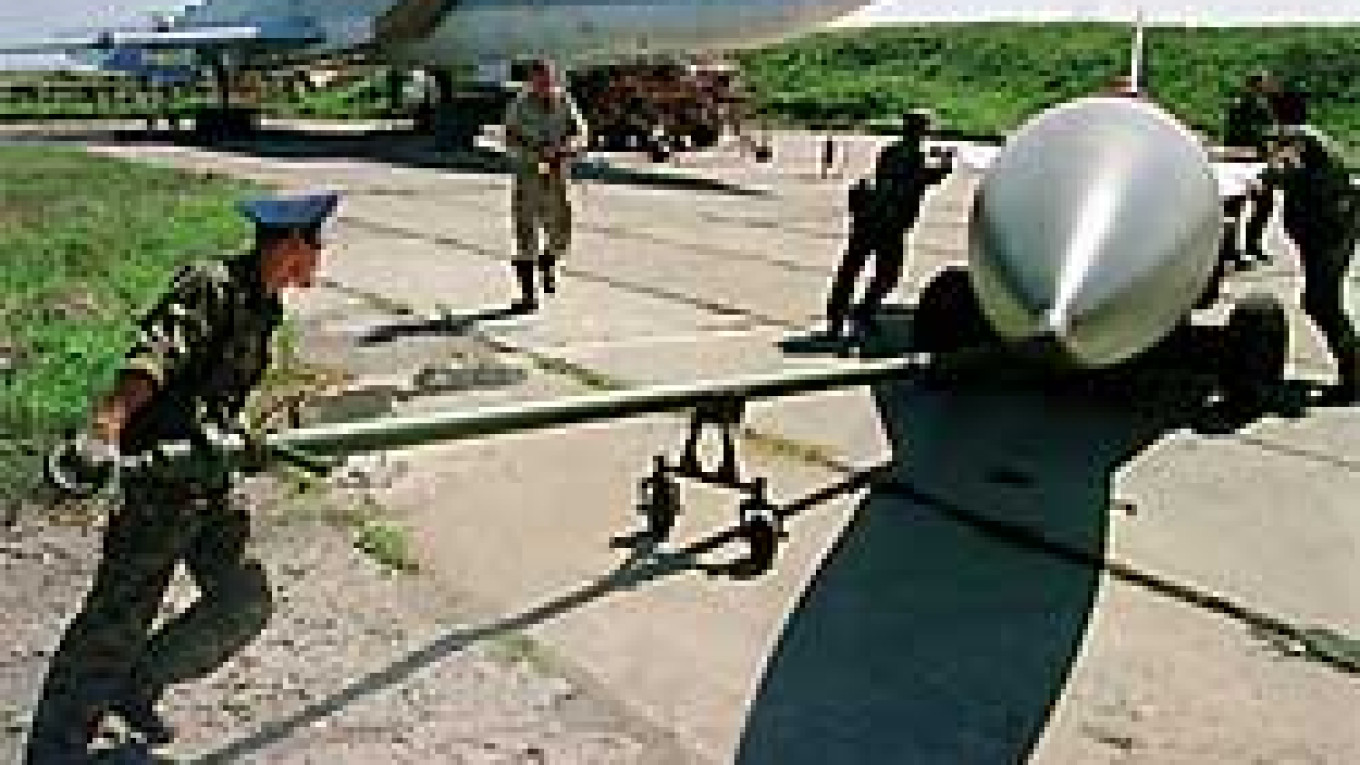Russia said its planes were training near Japan, but strongly denied they had violated Japanese airspace.
The incident came one day after leaders of Japan and Russia agreed to meet March 25 in Irkutsk to work toward a treaty formally ending World War II hostilities.
A Japan Defense Agency spokesman said that four Russian bombers entered Japanese airspace near Rebun island off its northernmost island of Hokkaido, about 1,200 kilometers north of Tokyo, and remained there for some three minutes just around noon.
The four planes flew out of Japan's airspace after Japanese military jets scrambled in response, he added.
Two other bombers entered Japanese airspace again for about three minutes from 2:36 p.m., he said.
Of the six planes involved in the two incidents, four were Tu-22s, more commonly known as Backfires, and two were unidentified, the defense agency said.
"After the statements from the Japanese side, we analyzed all our flights once again," Defense Minister Igor Sergeyev told journalists in Moscow. "There were no violations of Japanese airspace."
Kazuhiko Togo, director general of the Foreign Ministry's European Affairs Bureau, protested to the Russian ambassador to Japan, Alexander Panov, about the incident.
"He also strongly called for the Russian government to make clear the cause of this intrusion and take steps to prevent it ever happening again," the ministry said in a statement.
Ministry officials said Panov replied that he would look into what happened.
Colonel Alexander Drobyshevsky, the Russian air force spokesman, said by telephone that Moscow "categorically denied" there had been any intrusion into Japanese airspace.
"No Russian military aircraft violated the airspace of any neighboring state," he said.
Asked why the Russian denial had come so swiftly and how the air force could be sure there had been no intrusion, the Russian air force spokesman said: "There are exercises going on, and we are watching everything."
The number of airspace violations had fallen drastically since the end of the Cold War, the Japan Defense Agency spokesman said. Russian military jets last intruded into Japanese air space in March 1995, he added.
Ties between Japan and Russia have been strained for years over a territorial dispute involving the Kurils, four tiny Russian-held islands north of Hokkaido.
Japan wants the islands, which were seized by Soviet troops in the waning days of World War II, returned before it signs any peace treaty or hands out substantial financial aid.
Russian Bombers Assert Presence
Two Norwegian F-16 fighters scrambled early Wednesday to identify Russian Blackjack strategic bombers detected off the NATO-member's coast for the first time in two years, The Associated Press reported.
The fighters identified the two aircraft as supersonic Tu-160 Blackjack bombers, flying in international airspace northwest of Andoeya, an island along Norway's northern coast.
"It has been awhile since we have seen these aircraft. There was one case in 1999, and before that it had been many years," said Colonel John Espen Lien of the Norwegian Supreme Defense Command.
He said the Russians advised Norway that it was planning increased activity from military bases on the Kola Peninsula of northwestern Russia.
Lien said Russia also advised Britain that the Blackjack and Tu-95 Bear bombers might near that nation's coast during exercises this week.
A Message from The Moscow Times:
Dear readers,
We are facing unprecedented challenges. Russia's Prosecutor General's Office has designated The Moscow Times as an "undesirable" organization, criminalizing our work and putting our staff at risk of prosecution. This follows our earlier unjust labeling as a "foreign agent."
These actions are direct attempts to silence independent journalism in Russia. The authorities claim our work "discredits the decisions of the Russian leadership." We see things differently: we strive to provide accurate, unbiased reporting on Russia.
We, the journalists of The Moscow Times, refuse to be silenced. But to continue our work, we need your help.
Your support, no matter how small, makes a world of difference. If you can, please support us monthly starting from just $2. It's quick to set up, and every contribution makes a significant impact.
By supporting The Moscow Times, you're defending open, independent journalism in the face of repression. Thank you for standing with us.
Remind me later.


